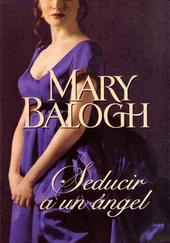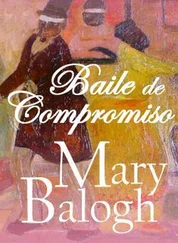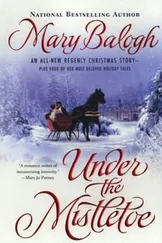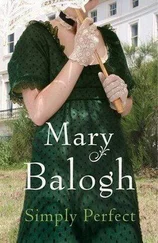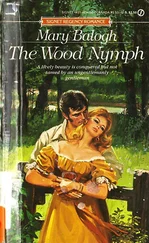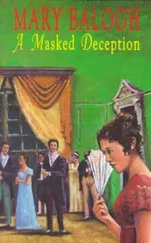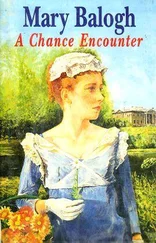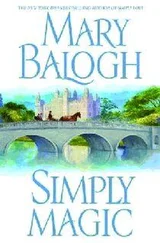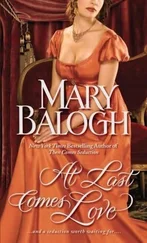Mary Balogh - Simply Unforgettable
Здесь есть возможность читать онлайн «Mary Balogh - Simply Unforgettable» весь текст электронной книги совершенно бесплатно (целиком полную версию без сокращений). В некоторых случаях можно слушать аудио, скачать через торрент в формате fb2 и присутствует краткое содержание. Жанр: Старинная литература, на английском языке. Описание произведения, (предисловие) а так же отзывы посетителей доступны на портале библиотеки ЛибКат.
- Название:Simply Unforgettable
- Автор:
- Жанр:
- Год:неизвестен
- ISBN:нет данных
- Рейтинг книги:4 / 5. Голосов: 1
-
Избранное:Добавить в избранное
- Отзывы:
-
Ваша оценка:
- 80
- 1
- 2
- 3
- 4
- 5
Simply Unforgettable: краткое содержание, описание и аннотация
Предлагаем к чтению аннотацию, описание, краткое содержание или предисловие (зависит от того, что написал сам автор книги «Simply Unforgettable»). Если вы не нашли необходимую информацию о книге — напишите в комментариях, мы постараемся отыскать её.
Simply Unforgettable — читать онлайн бесплатно полную книгу (весь текст) целиком
Ниже представлен текст книги, разбитый по страницам. Система сохранения места последней прочитанной страницы, позволяет с удобством читать онлайн бесплатно книгу «Simply Unforgettable», без необходимости каждый раз заново искать на чём Вы остановились. Поставьте закладку, и сможете в любой момент перейти на страницу, на которой закончили чтение.
Интервал:
Закладка:
SIMPLY UNFORGETTABLE
A Delacorte Book / April 2005
Published by
Bantam Dell
A Division of Random House, Inc.
New York, New York
This is a work of fiction. Names, characters, places, and incidents either are the product of the author’s imagination or are used fictitiously. Any resemblance to actual persons, living or dead, events, or locales is entirely coincidental.
All rights reserved
Copyright © 2005 by Mary Balogh
Delacorte Press is a registered trademark of Random House, Inc., and the colophon is a trademark of Random House, Inc.
Library of Congress Cataloging in Publication Data
Balogh, Mary.
Simply unforgettable / Mary Balogh.
p. cm.
eISBN 0-440-33530-2
1. Aristocracy (Social class)—Fiction. 2. Women teachers—Fiction. 3. Music teachers—Fiction. 4. Bath (England)—Fiction. I. Title.
PR6052.A465S53 2005
823'.914—dc22 2004058249
Contents
Title Page
Chapter 1
Chapter 2
Chapter 3
Chapter 4
Chapter 5
Chapter 6
Chapter 7
Chapter 8
Chapter 9
Chapter 10
Chapter 11
Chapter 12
Chapter 13
Chapter 14
Chapter 15
Chapter 16
Chapter 17
Chapter 18
Chapter 19
Chapter 20
Chapter 21
Chapter 22
Chapter 23
Chapter 24
Chapter 25
Chapter 26
Also by Mary Balogh
Copyright Page


It never snowed for Christmas. It always snowed—if it snowed at all—before Christmas, when people were trying to travel to family gatherings or house parties, or long after Christmas, when it was a mere nuisance to people trying to go about the business of their everyday lives. It never snowed actually on Christmas, when it would have added a picturesque quality and some magic to the celebrations.
Such was the sad reality of living in England.
This year had been no exception. The skies had remained stubbornly gray and heavy with the promise of something dire all over the holiday, and the weather had been chilly and blustery and really not very pleasant at all. But the ground had remained obstinately bare and as drab as the sky.
It had been a rather dreary Christmas, if the truth were told.
Frances Allard, who had made the long day’s journey from Bath, where she taught at Miss Martin’s School for Girls on Sutton and Daniel streets, in order to spend the holiday with her two great-aunts near the village of Mickledean in Somersetshire, had looked forward to being in rural surroundings. She had dreamed of taking long walks in the crisp winter countryside, blue skies overhead, or else of wading to church and the Assembly Rooms through a soft white fall of snow.
But the wind and the cold devoid of sunshine had forced her to curtail the few walks she had undertaken, and the Assembly Rooms had remained firmly closed, everyone having been content, it seemed, to spend Christmas with family and friends this year rather than with all their neighbors at a communal party or ball.
Frances would have been lying to herself if she had not admitted to feeling just a little disappointment.
Miss Gertrude Driscoll and her widowed sister, Mrs. Martha Melford, Frances’s great-aunts, who lived at the dower house in the park of Wimford Grange, had been invited to join Baron Clifton’s family at the big house on Christmas Day, the baron being their great-nephew and therefore a cousin of some remove to Frances. Frances had been invited too, of course. They had also all been invited to a few other private parties in the neighborhood. But the great-aunts had sent back polite refusals to them all, declaring themselves too cozy in their own house to venture outdoors in such inclement weather and too contented with the coveted company of their great-niece to bother with any invitations. They could, after all, visit their great-nephew and his family and their neighbors any day of the year. Besides, Great-Aunt Gertrude had fancied that she was coming down with something, though she had displayed no clearly discernible symptoms, and dared not stray too far from the fireside of her own home.
Frances’s wishes had not been consulted.
Only when the holiday was over and they were hugging her and shedding a few tears over her and kissing her good-bye before she stepped up into their rather rickety private carriage, which they had insisted upon sending with her though it did not usually venture beyond a five-mile radius around the village, did it occur to her great-aunts that maybe they had been selfish in remaining at home all over the holiday and ought to have remembered that dear Frances was only three-and-twenty and would perhaps have enjoyed a party or two and the company of other young people to enliven the tedium of a Christmas spent entirely with two old ladies.
She had hugged them in return and shed a few tears of her own and assured them—almost truthfully—that they were all she had needed to make Christmas a wondrously happy occasion after a long term at school, though actually it had been more than one term. She had remained at the school all through last summer, since Miss Martin took in charity girls and it was always necessary to provide for their care and entertainment through the various holidays—and Frances had had nowhere particular to go at the time.
Christmas had, then, been a disappointingly dull holiday. But she really had enjoyed the quiet after the constantly busy bustle of school life. And she was extremely fond of her great-aunts, who had opened their arms and their hearts to her from the moment of her arrival in England as a motherless baby with a French émigré father who had been fleeing the Reign of Terror. She had no memory of that time, of course, but she knew that the aunts would have brought her into the country to live with them if Papa had chosen to let her go. But he had not. He had kept her with him in London, surrounding her with nurses and governesses and singing masters, and lavishing upon her all that money could buy for her comfort and pleasure—and oceans of love besides. She had had a happy, privileged, secure childhood and girlhood—until her father’s sudden death when she was only eighteen.
But her aunts had had some role to play in her growing years. They had brought her into the country for holidays and had occasionally gone to London to take her about and buy her gifts and feed her ices and other treats. And ever since she had learned to read and write she had exchanged monthly letters with them. She was inordinately fond of them. It really had been lovely to spend Christmas in their company.
There had been no snow to enliven her Christmas, then.
There was snow, however—and plenty of it—soon after.
It began when the carriage was no more than eight or ten miles from Mickledean, and Frances did consider knocking on the roof panel and suggesting to the elderly coachman that they turn around and go back. But it was not a heavy snow, and she did not really want to delay her journey. It looked more like a white rain for all of the hour after it began. But inevitably—when it really was too late to turn back—the flakes became larger and thicker, and in an alarmingly short time the countryside, which had been looking as if it were rimed with heavy frost rather than with snow itself, began to disappear under a thickening blanket of white.
The carriage moved steadily onward, and Frances assured herself that it was foolish to be nervous, that the road was probably perfectly safe for travel, especially at the plodding speed to which Thomas was keeping the horses. Soon the snow would stop falling and begin to melt, as was always the way with snow in England.
Читать дальшеИнтервал:
Закладка:
Похожие книги на «Simply Unforgettable»
Представляем Вашему вниманию похожие книги на «Simply Unforgettable» списком для выбора. Мы отобрали схожую по названию и смыслу литературу в надежде предоставить читателям больше вариантов отыскать новые, интересные, ещё непрочитанные произведения.
Обсуждение, отзывы о книге «Simply Unforgettable» и просто собственные мнения читателей. Оставьте ваши комментарии, напишите, что Вы думаете о произведении, его смысле или главных героях. Укажите что конкретно понравилось, а что нет, и почему Вы так считаете.


